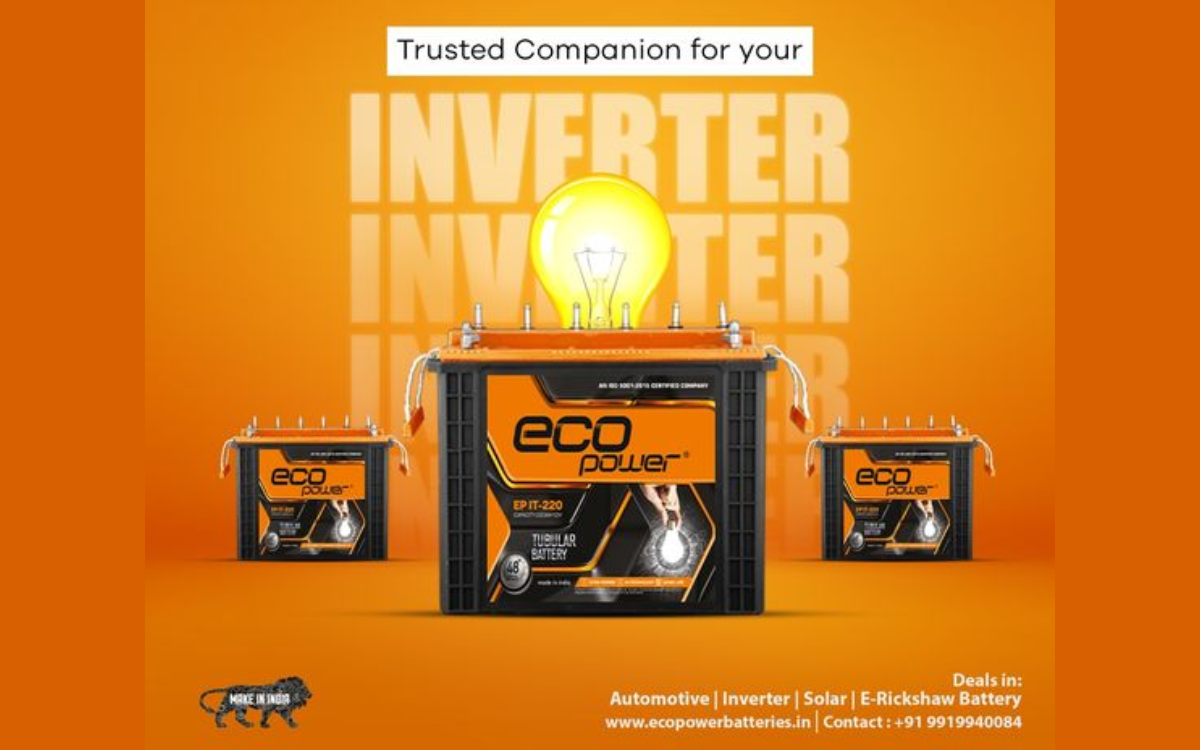When it comes to ensuring uninterrupted power supply during outages or load shedding, choosing the right backup power solution is crucial. In India, where power cuts are not uncommon, the decision between inverter batteries and generators can be a significant one. In this blog, we will explore the advantages and disadvantages of both options to help you make an informed choice.
Inverter Batteries:
As one of the leading battery suppliers and manufacturers in India, Eco Power is at the forefront of providing efficient inverter batteries to meet the diverse needs of consumers. Here are some key points to consider when evaluating inverter batteries:
1.Cost-Efficiency:
Inverter batteries are generally more cost-effective than generators. They have a lower upfront cost and require less maintenance over time. Battery manufacturers like Eco Power offer a wide range of options to fit different budgets.
2.Environmentally Friendly:
Inverter batteries are eco-friendly as they do not produce harmful emissions or noise pollution, unlike generators. This makes them a preferred choice for those who are environmentally conscious.
3.Low Noise Levels:
Inverter batteries operate silently, ensuring a peaceful environment in your home or workplace. This is especially important for businesses that require a quiet setting for their operations.
4.Space-Saving:
Inverter batteries are compact and can be installed in a small area, making them ideal for homes or businesses with limited space.
5.Ease of Use:
Inverter batteries are easy to operate and modern models come with advanced features like auto power cut when fully charged and other features, making them user-friendly.
Generators:
While generators have been a traditional backup power source, they come with their own set of advantages and drawbacks:
1.High Power Output:
Generators can provide a higher power output compared to most inverter batteries, making them suitable for heavy-duty applications in industries or large commercial setups.
2.Continuous Power:
Generators can run continuously as long as there is a fuel supply. This makes them a reliable choice for long-duration power outages.
3.Quick Start:
Generators start almost instantly when the power goes out, ensuring minimal disruption.
4.Fuel Dependency:
Generators rely on fuel sources like diesel or gasoline, which can be expensive and subject to price fluctuations. Additionally, the noise and emissions from generators can be a concern for both residential and commercial areas.
5.Maintenance & Space:
Generators require regular maintenance and a dedicated space for installation. Maintenance costs can add up over time, making them a less cost-effective option in the long run.
Which Option is Right for You?
The choice between inverter batteries and generators depends on your specific needs and priorities. Here are some factors to consider:
1.Power Requirements:
If you need high power output for extended periods, a generator might be the better choice. For basic home or office backup needs, inverter batteries are sufficient.
2.Budget:
Inverter batteries are generally more budget-friendly both in terms of initial cost and long-term maintenance. If cost is a significant concern, they are the way to go.
3.Environmental Concerns:
If you prioritize an eco-friendly solution with minimal noise and emissions, inverter batteries are the clear winner.
4.Space Constraints:
If you have limited space, inverter batteries are compact and versatile.
5.Ease of Use:
Inverter batteries are user-friendly and require minimal monitoring and maintenance.
In conclusion, both inverter batteries and generators have their merits, and the choice depends on your specific requirements. But considering the fact that generators pollute the environment, it is better to choose a right alternative.As a leading inverter battery manufacturer in India, Eco Power offers a wide range of high-quality inverter batteries designed to meet your backup power needs efficiently and cost-effectively. Ultimately, the right decision will ensure that you have a reliable and sustainable power backup solution in place, giving you peace of mind during power outages.
